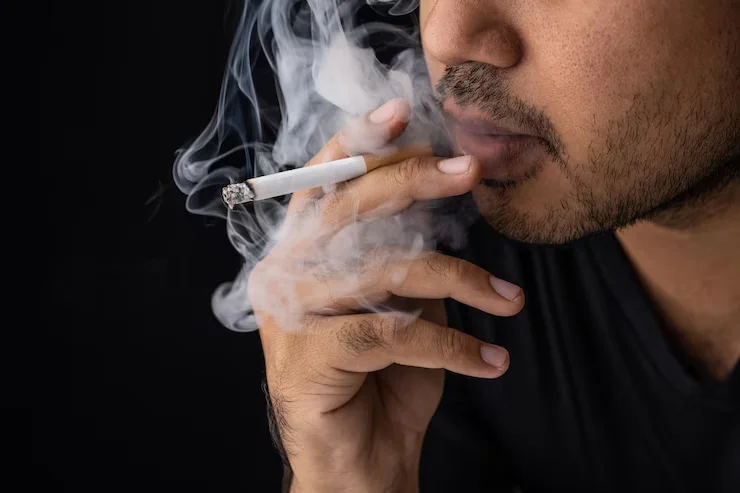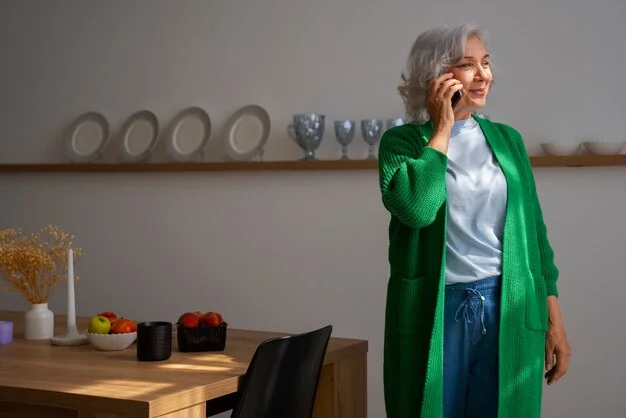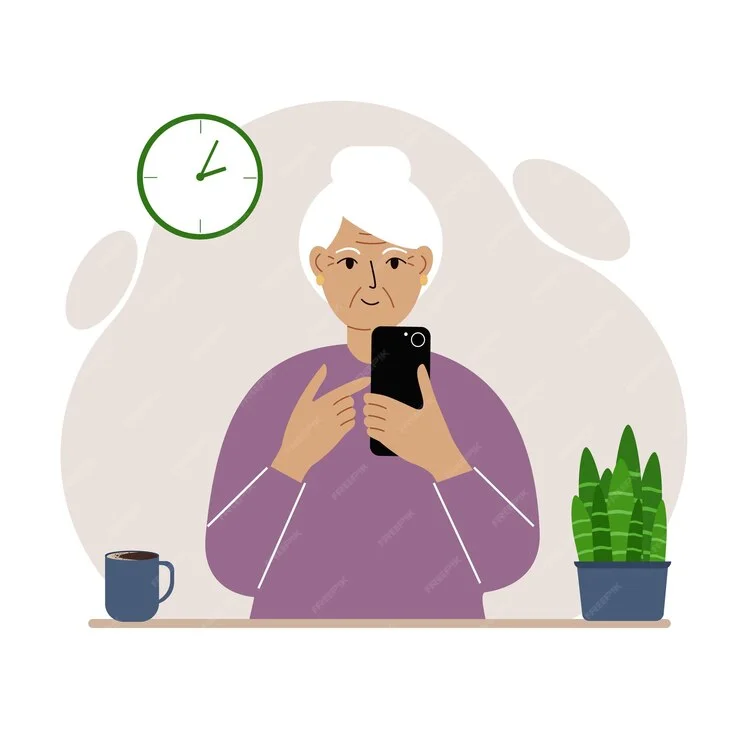14 Lifestyle Habits Making You Look Years Older And How To Reverse Them
We all want to look young, vibrant and healthy. But many of us are unknowingly doing things that make us appear older than we are. A recent study showed 50% of people look nearly 10 years older than their actual age due to poor lifestyle habits.
The good news? Many behaviors that age you faster are totally within your control to change. In this article we’ll review the science around 14 key habits making you look older and simple solutions to reverse them.
1. Smoking Cigarettes
Cigarette smoke contains thousands of chemicals that damage collagen and elastin while drastically thinning the outermost protective skin barrier.
- Every cigarette smoked after age 35 adds an additional 2 days of facial aging.
- Habitual smokers appear gaunt with increased facial wrinkling, age spots, uneven skin pigmentation.
This accelerated aging is due to reduced blood flow restricting nutrient delivery to the skin. Smoking also triggers degradation enzymes like MMP that destroy precious collagen.
Solutions
- Quit smoking with nicotine patches, gum, therapy
- Use peptide creams to stimulate collagen production
- Protect skin with antioxidant serums (vitamin C, E, ferulic acid)
2. Drinking Alcohol in Excess
Happy hour drinks with friends seems harmless, but heavy alcohol consumption ages skin severely through multiple pathways:
- Inflammatory mediators called prostaglandins generated in response to alcohol create red, puffy complexions
- Alcohol dehydrates skin cells, leaving the face looking dry and drained
- It restricts vitamin A availability required for collagen synthesis
Alcoholics show markedly accelerated aging with greyish, uneven pigmentation, deep creases around the nose and mouth along with spider veins and puffy eyes.
Recommended alcohol limits
| If You’re A | Recommended Limit is |
|---|---|
| Woman | 1 drink per day |
| Man | 2 drinks per day |
This equates to 12oz of beer, 5oz wine or 1.5oz distilled spirits.
3. Not Applying SPF Sunscreen
Ultraviolet radiation from sunlight is the #1 extrinsic factor responsible for facial aging. Both UVA and UVB rays penetrate into the dermis breaking down elastic collagen fibers that keep skin firm and taut.
Some effects of photoaging include:
- Textural abnormalities like leatheriness, wrinkling, blotchiness
- Pigmentation irregularities – age spots, melasma
- Telangiectasias – enlarged blood vessels under skin surface
Daily broad spectrum SPF 30 sunscreen and wide brimmed hats are imperative for youthful looks regardless of skin tone or pigment. Choose mineral formulas with zinc oxide vs chemical filters.
4. Not Exercising Enough
A sedentary lifestyle with limited physical activity has been linked to shortened telomeres – the protective caps at the end of DNA strands crucial for cell health.
- Active adults have white blood cell telomeres measuring nearly 10 years younger than inactive peers.
- Just 15-30 minutes of daily moderate exercise protects against telomere degradation.
Intriguingly, over-exercising produces high systemic inflammation and cortisol also damaging to telomeres. Aim for 150 minutes weekly as the sweet spot.
Helpful Exercises
- Brisk walking
- Jogging
- Yoga
- Bodyweight training
5. Consuming Too Much Sugar
Sugar molecules react with proteins through a process known as glycation forming rogue compounds called advanced glycation end (AGE) products. These AGEs disable normal collagen and elastin proteins that keep skin firm and resilient leading to:
- Loss of facial volume
- Drooping jowls
- Deep nasolabial folds
- Fragile skin tearing easily
Minimizing added dietary sugars to under 25g daily protects the matrix. Additionally, topical green tea, vitamins C, E and amino acids like taurine help reinstate flexible, strong collagen.
Here is the continuation covering all 14 habits that make you look older from the outline in detail:
6. Not Getting Enough Sleep
Chronic sleep deprivation speeds skin aging by:
- Disrupting collagen synthesis – you require deep REM sleep to turn over fresh collagen
- Increasing cortisol which degrades existing collagen. Late nights heighten this stress hormone sabotaging skin.
- Activating inflammatory cascades that degrade supportive connective tissue. Just 1 week of sleeping 5 hours activates genes promoting inflammation by 70%.
Prioritize 7-9 hours nightly. Additionally melatonin, meditation, magnesium supplements before bedtime enhance overnight skin repair.
7. Frowning, Squinting, Scowling Too Much
Repetitive facial expressions etch lines and creases into the skin through sheer mechanical force. Habitually frowning and squinting form vertical lines between brows and horizontal lines across foreheads:
High Skin Tension Areas Prone To Lines
- Forehead
- Frown glabellar lines between brows
- Crow’s feet beside eyes
- Nasolabial folds around mouth
Botox selectively weakens overactive muscles driving these repeated facial motions. Interestingly, those who fully paralyze frowning muscles with neurotoxins form fewer etched-in creases than partial paralysis – emphasizing importance of full knock out.
8. Stressing Too Frequently
When anxious or overwhelmed, elevated stress hormone cortisol breaks down skin proteins quicker – namely collagen and elastin fibers keeping skin supple.
- Studies demonstrate women with higher perceived stress have 7.5 years accelerated skin aging compared to more relaxed peers with youthful complexions unaffected by time.
- Managing daily stressors and maintaining positivity slows facial aging processes to preserve that coveted natural glow.
9. Excess UV Exposure From Tanning Beds
Despite massive public skin cancer awareness campaigns, over 10 million Americans still use indoor tanning beds frequently to “prepare skin” before vacation or maintain a late summer bronze.
However UVA rays from tanning beds cause:
- Leathery skin texture with yellow discoloration
- Fine and coarse wrinkling
- Increased risk of early melanoma. Those tanning before age 30 have a 75% higher melanoma risk.
Instead opt for sunless tanning lotions or creams containing dihydroxyacetone (DHA) offering UV-free, safer glow without aging effects.
10. Yo-yo Dieting
Weight fluctuations from chronic yo-yo dieting ages your face by:
- Repeatedly stretching skin leading to permanent loss in elastic fibers. Just a 10-15 lb weight swing sufficiently reduces skin recoil strength.
- Nutrient deficiencies from extreme low calorie plans impair collagen production.
Aim for steady, modest weight loss at a 1-2 lbs weekly rate using measured macronutrient tracking to avoid sagging. Hit daily protein intake goals and micronutrient needs even while cutting calories.
11. Ignoring Skincare in Your 20s/30s
Surprisingly most women don’t practice proper skincare regimens until their 40s and 50s once advanced aging signs manifest. However, incorporating preventative ingredients in early adulthood reserves collagen supply keeping you looking decades younger.
Common oversights include:
- Neglecting the vulnerable eye area lacking natural oils. This prompts crow’s feet. Use peptides, vitamin K creams.
- Using regular body bar soap that strips facial oils. Foaming cleansers are gentler.
- Forgetting the neck down to décolleté with daily SPF.
Develop great skincare habits now, so your future self thanks you!
12. Staring at Screens Too Much
We live in a digital age spending average 6-9 hours daily gazing at smartphones, laptops, tablets.
This blue light overexposure sparks free radical production that damage skin cells and break down supportive collagen:
- One small study found major visible differences between iPhone user’s and non-user’s faces under specialized UVA lamps showing accelerated aging on the iPhone side.
- Constant screen glare also promotes repetitive squinting etching delicate crow’s feet eye wrinkles.
- Dry eyes from reduced blink rate to stare at screens evaporates moisture forming under eye lines. Blink frequently!
Follow the 20/20/20 rule – every 20 minutes, look away at something 20 feet away for 20 seconds. This protects eyes and facial muscle groups.
13. Smoking E-Cigarettes
Once touted as a safer cigarette alternative, emerging research links vaping to face aging similar to traditional smoking through:
- Exposure to fine particulate metals like copper and nickel that generate free radicals destroying collagen when inhaled
- Propylene glycol carrier chemicals provoking inflammation
- Various added flavorings disrupting skin health via unknown mechanisms
If attempting to quit smoking, use evidence-based nicotine replacement patches or medications, not unregulated vaping products with accumulating harm data.
14. Environmental Pollution
We cannot control outdoor environmental pollution as readily. Though, particulate matter less than 2.5 microns like smog, haze, smoke settling into delicate eyelid and upper lip skin creases act like sandpaper carving furrows over time.
Additionally, climate change driven ozone layer depletion allows heightened UVA/UVB radiation striking unprotected skin prompting pigmentation irregularities and leathering.
- Compare side of face near car window when driving in traffic to opposite cheek. Pollutant particles visibly age skin.
- Use gentle cleansers to remove debris without abrasion.
- Protect with hats, tightly woven fabrics as barriers.
Key Takeaways
- Our daily habits and lifestyle choices strongly dictate biological skin aging
- Smoking, high sugar diets, excessive alcohol, sleep deprivation, stress and sun exposure without protection ranked most impactful for accelerated aging from reviewed studies
- Committing to positive behavior changes preserves youthful looks for decades to come far better than any anti-aging product alone
What You Can Do
Follow these simple, actionable solutions to actively slow skin aging:
- Wear SPF 30 sunscreen under makeup every single day
- Sleep 7-9 hours nightly
- Incorporate exercise into your routine 2-3x weekly
- Drink lots of hydrating water and eat clean with minimal sugar
- Kick the tobacco habit with nicotine gum
- Use retinoids 2-3 nights per week forcing collagen regeneration
- Manage stress through yoga, meditation, nature walks
- Exfoliate skin weekly to purge pollution debris
- Moisturize liberally morning and night
Stay disciplined adopting these habits regularly and you’ll shave years off your looks outpacing peers. Take control of needless, avoidable aging!
People Also Ask
How can I reverse my skin’s biological age?
Focus on proven ingredients boosting collagen production – topical vitamin C, over-the-counter retinoids, alpha hydroxy acids (AHAs), vitamin B3, copper peptides. Additionally get sufficient protein (50g+ daily) and vitamin C from diet.
Does losing or gaining weight age your face more?
Fluctuating weight yo-yos skin leading to permanent loss in elasticity promoting sagging. Steady, modest weight loss doesn’t strain facial skin as severely. Losing 1-2 lbs weekly gives skin enough time to gently contract without overstretching ligaments.
Why does smoking make you look older faster?
Tobacco smoke thins the outermost protective skin barrier, narrows underlying blood vessels restricting nutrient delivery to skin cells. Enzymes and chemicals in smoke also directly break down collagen and elastin proteins leading to wrinkling and bagging.

